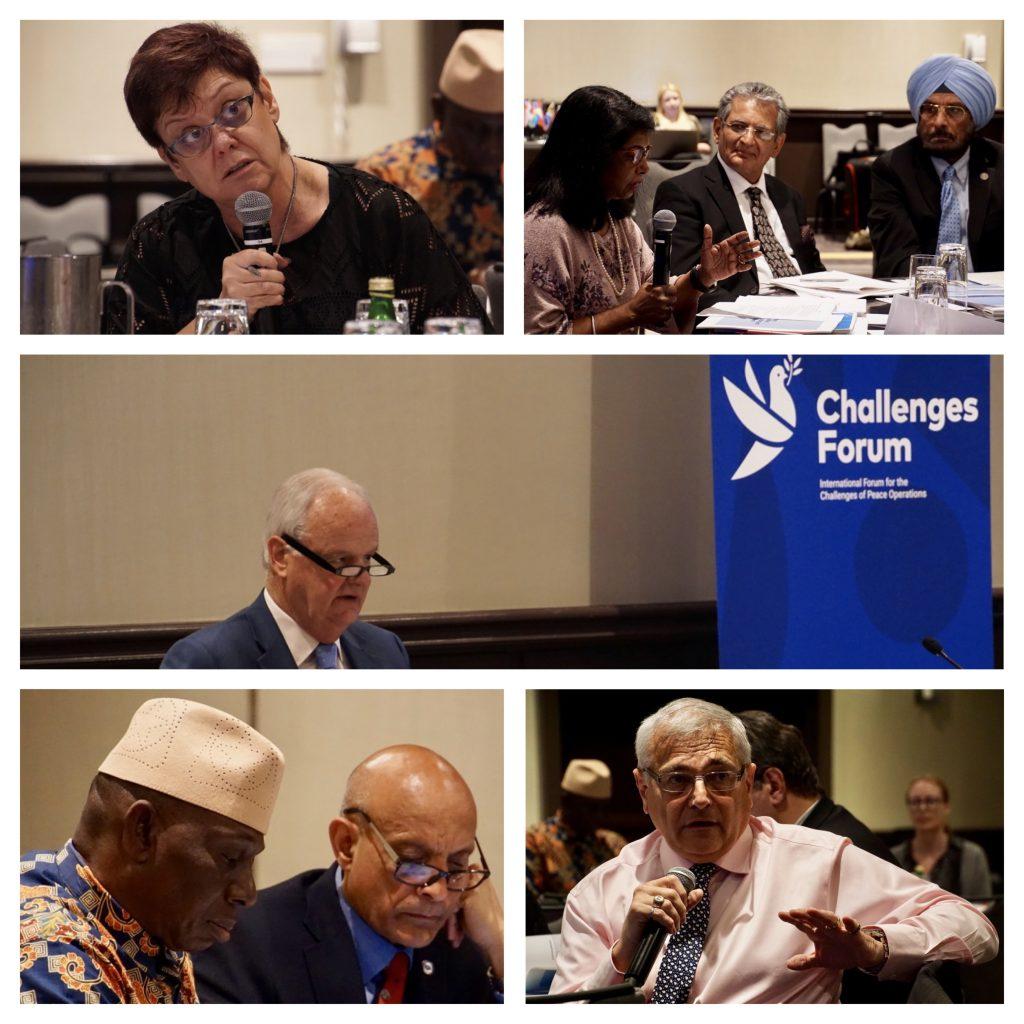Roundtable Discussion on Consideration for Mission Leadership in UN Peace Operations
On 12 June, back to back with the Challenges Annual Forum 2019, a Senior Advisory Group met to discuss considerations and polarities for mission leadership in UN peace operations. The Advisory Group, consisting of high-level representatives from UN peace operations – representing both field and headquarter perspective – has been formed to support Challenges Forum guidance “Considerations for Mission Leadership in United Nations Peace Operations”. The overall objective of the study is to contribute to stronger and more effective leadership and management of UN peace operations, including special political missions.

Contemporary UN peace operations are becoming increasingly complex. Effective management and inclusive leadership by the mission’s leadership team (MLT) are arguably the most important factors in the success of peace operations. This requires imaginative and dedicated leadership by the MLT, that is grounded in integrity and competence and with the ability to plan, implement and follow up on a mission plan. These trends have placed greater demands on mission leadership, requiring MLTs to be better prepared, resourced and accountable for their actions.
Central to the MLT’s endeavours is to manage polarities. Polarities are described here as a conflict of principles where both need to be accommodated – i.e. after due consideration an equilibrium must be found and maintained over time. An example could be the potential conflict between the need to protects civilians while maintaining host nation consent.
Moving forward, the guidance will continue to be developed incorporating points from the roundtable discussion as well as case studies from the field. A presentation of the final guidance will be made at the 2019 IAPTC Conference “Training for Effective Peace Operations: Renewing Commitments and Advancing Partnerships”, held in Peru on 7-10 October. It will finally be developed into a more user-friendly instrument based on an e-tool, with the aim to be launched in 2020.
The work on the guidance has been led by Co-Chairs from Challenges Partners United Service Institute of India (USI); Peacekeeping and Stability Operations Institute (PKSOI), USA; Australian Civil-Military Centre; FBA – Agency for Peace, Security and Development, Sweden; National Defence University Islamabad (NDU), Pakistan; Cairo Center for Conflict Resolution & Peacekeeping in Africa (CCCPA), Egypt; Institute for Security Studies (ISS), South Africa; and DCAF – Geneva Centre for Security Sector Governance (Switzerland).

